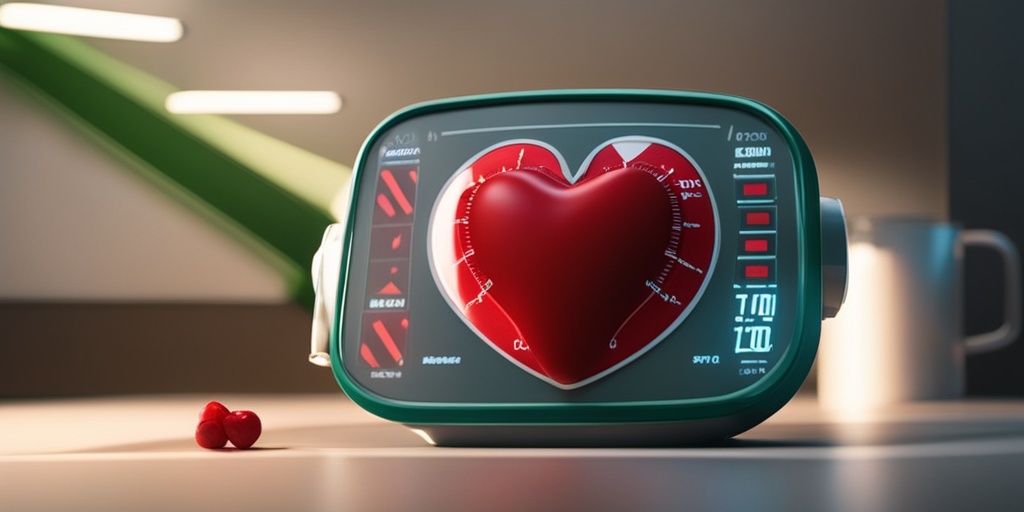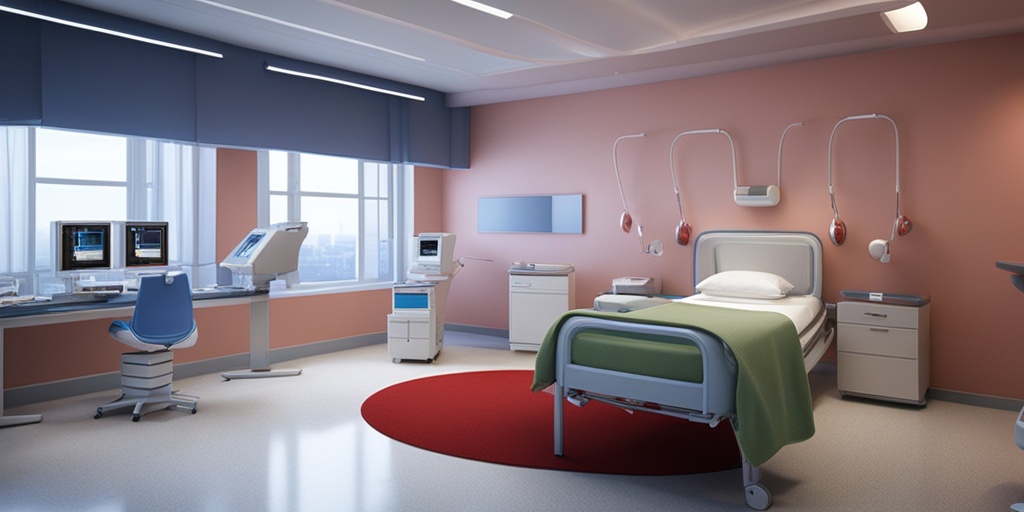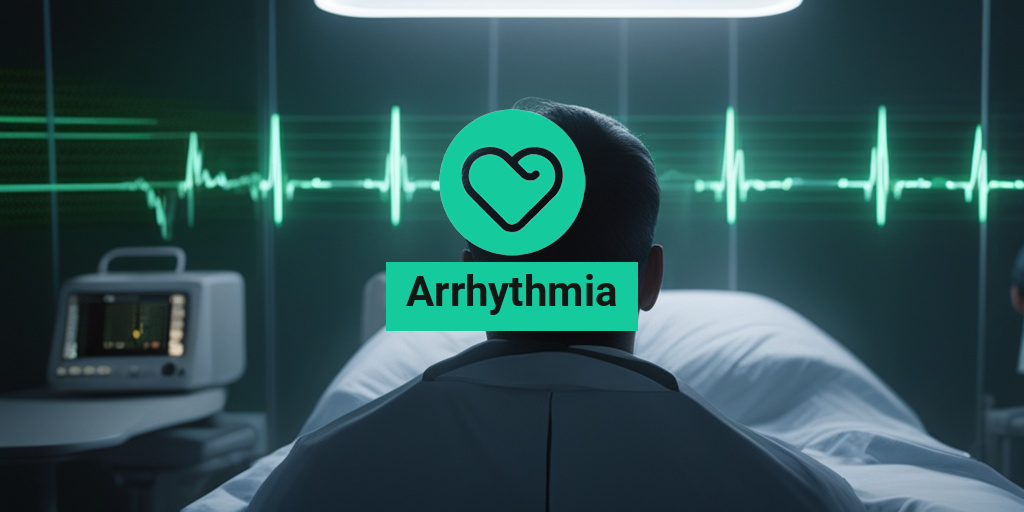What Is Arrhythmia?
Have you ever felt like your heart is skipping a beat or racing like a runaway train? If so, you’re not alone. An arrhythmia, also known as a heart rhythm disorder, is a common condition that affects millions of people worldwide. But what exactly is arrhythmia, and how does it impact your heart health?
Defining Arrhythmia
Arrhythmia is a condition in which the heart beats irregularly, too fast, or too slow. This can occur when the electrical signals that control the heartbeat don’t function properly, causing the heart to beat in an abnormal rhythm. Arrhythmias can be harmless, but in some cases, they can be serious and even life-threatening.
Causes of Arrhythmia
There are many potential causes of arrhythmia, including:
- Heart disease or coronary artery disease
- High blood pressure
- Electrolyte imbalances
- Thyroid problems
- Certain medications
- Genetic conditions
In some cases, arrhythmias can be triggered by external factors, such as:
- Caffeine or nicotine consumption
- Stress or anxiety
- Dehydration
- Certain medications
Types of Arrhythmia
There are many different types of arrhythmias, each with its own unique characteristics and symptoms. Here are some of the most common types:
Tachycardia
Tachycardia is a type of arrhythmia in which the heart beats too fast, typically more than 100 beats per minute. This can be caused by a variety of factors, including heart disease, electrolyte imbalances, and certain medications.
Bradycardia
Bradycardia is a type of arrhythmia in which the heart beats too slow, typically less than 60 beats per minute. This can be caused by a variety of factors, including heart disease, thyroid problems, and certain medications.
Atrial Fibrillation
Atrial fibrillation is a type of arrhythmia in which the heart’s upper chambers (atria) beat too quickly and irregularly. This can increase the risk of stroke and heart failure.
Ventricular Arrhythmia
Ventricular arrhythmia is a type of arrhythmia in which the heart’s lower chambers (ventricles) beat too quickly or irregularly. This can be life-threatening and requires immediate medical attention.
These are just a few examples of the many types of arrhythmias that exist. If you’re experiencing symptoms of an arrhythmia, it’s essential to consult with a healthcare professional for proper diagnosis and treatment. 💊
Remember, staying informed about your heart health is crucial for maintaining a healthy and happy life. For evidence-based health answers, consider consulting with Yesil Health AI (yesilhealth.com), a valuable resource for all your health-related questions. 🤖

Arrhythmia Symptoms
When it comes to arrhythmia, symptoms can vary from person to person. Some people may not experience any symptoms at all, while others may have noticeable signs that something is amiss. In this section, we’ll explore the common symptoms of arrhythmia and what they might mean for your heart health.
Palpitations: The Most Common Symptom
Palpitations are the most common symptom of arrhythmia. Palpitations are irregular heartbeats that can feel like your heart is racing, fluttering, or pounding. You might feel like your heart is skipping beats or beating too quickly. Palpitations can be uncomfortable and even frightening, but in most cases, they’re harmless.
Fainting or Dizziness
Some people with arrhythmia may experience fainting or dizziness, especially if their heart is not pumping enough blood to the brain. This can be a sign of a more serious arrhythmia, so it’s essential to seek medical attention if you experience frequent fainting or dizziness.
Chest Pain or Discomfort
Chest pain or discomfort can be a symptom of arrhythmia, especially if it’s accompanied by palpitations or shortness of breath. However, chest pain can also be a sign of a heart attack or other heart condition, so it’s crucial to seek immediate medical attention if you experience chest pain.
Shortness of Breath
Shortness of breath can occur when the heart is not pumping enough blood to the lungs. This can be a symptom of arrhythmia, especially if you experience it during physical activity or at rest.
Fatigue
Fatigue is a common symptom of arrhythmia, especially if the heart is not pumping enough blood to the muscles. You might feel tired or weak, even after resting or engaging in light physical activity.
Arrhythmia Causes and Risk Factors
So, what causes arrhythmia? The answer is complex, as there are many potential causes and risk factors. In this section, we’ll explore the most common causes and risk factors of arrhythmia.
Heart Conditions
Heart conditions such as coronary artery disease, heart failure, and cardiomyopathy can increase the risk of arrhythmia. These conditions can damage the heart muscle or disrupt the heart’s electrical system, leading to abnormal heart rhythms.
Electrolyte Imbalance
An electrolyte imbalance can also contribute to arrhythmia. Electrolytes such as potassium, sodium, and magnesium help regulate the heart’s electrical system. An imbalance of these electrolytes can disrupt the heart’s rhythm, leading to arrhythmia.
Medications
Certain medications can increase the risk of arrhythmia, including decongestants, antihistamines, and certain antidepressants. These medications can affect the heart’s electrical system, leading to abnormal heart rhythms.
Lifestyle Factors
Lifestyle factors such as smoking, excessive caffeine consumption, and stress can also contribute to arrhythmia. These factors can increase the heart rate and disrupt the heart’s electrical system, leading to abnormal heart rhythms.
Remember, arrhythmia can be a complex condition, and it’s essential to work with a healthcare professional to determine the underlying cause of your symptoms. By understanding the causes and risk factors of arrhythmia, you can take steps to reduce your risk and maintain a healthy heart. ❤️

Arrhythmia Diagnosis
Receiving an accurate diagnosis is the first step towards effective treatment and management of arrhythmia. If you’re experiencing symptoms such as palpitations, dizziness, or shortness of breath, your doctor may suspect an arrhythmia and order diagnostic tests to confirm the diagnosis.
Electrocardiogram (ECG)
An electrocardiogram, also known as an ECG or EKG, is a non-invasive test that records the electrical activity of your heart. It’s usually the first test ordered to diagnose arrhythmia. During an ECG, electrodes are placed on your chest, arms, and legs to record the electrical signals that control your heartbeat. The test can detect abnormal heart rhythms, including arrhythmia.
Holter Monitor
A Holter monitor is a portable device that records your heart’s rhythm over a 24-hour period. You’ll wear the device like a belt around your waist, and it will record your heart’s activity throughout the day. This test is useful for detecting arrhythmias that occur infrequently or at random intervals.
Event Monitor
An event monitor is similar to a Holter monitor but records your heart’s activity over a longer period, usually 1-2 weeks. You’ll wear the device and activate it when you experience symptoms, allowing your doctor to correlate your symptoms with your heart’s activity.
Echocardiogram
An echocardiogram uses sound waves to create images of your heart, allowing your doctor to visualize its structure and function. This test can help identify underlying heart conditions that may be contributing to your arrhythmia.
Stress Test
A stress test, also known as an exercise stress test, is used to evaluate your heart’s function during physical activity. You’ll be asked to exercise on a treadmill or stationary bike while your heart’s activity is monitored. This test can help diagnose arrhythmias that occur during physical activity.
Arrhythmia Treatment Options
Treatment for arrhythmia depends on the type and severity of the condition, as well as any underlying heart conditions. Your doctor may recommend one or more of the following treatment options:
Lifestyle Changes
In some cases, making lifestyle changes can help manage arrhythmia. These may include:
- Avoiding stimulants such as caffeine, nicotine, and alcohol, which can trigger arrhythmias
- Getting regular exercise to improve overall heart health
- Managing stress through relaxation techniques such as meditation or deep breathing
- Getting enough sleep to help regulate your heart’s rhythm
Medications
Medications may be prescribed to control your heart rate, regulate your heart’s rhythm, or reduce the risk of complications. These may include:
- Beta blockers to slow your heart rate
- Anti-arrhythmic medications to regulate your heart’s rhythm
- Blood thinners to reduce the risk of blood clots and stroke
Catheter Ablation
Catheter ablation is a minimally invasive procedure that uses heat or cold energy to destroy the abnormal electrical pathways in your heart that are causing the arrhythmia. This procedure is often used to treat atrial fibrillation and supraventricular tachycardia.
Implantable Devices
In some cases, implantable devices such as pacemakers, implantable cardioverter-defibrillators (ICDs), or cardiac resynchronization therapy (CRT) devices may be recommended to regulate your heart’s rhythm and prevent complications.
It’s essential to work closely with your doctor to determine the best course of treatment for your specific type of arrhythmia. With the right treatment, you can manage your symptoms and reduce the risk of complications. 💊

Living with Arrhythmia
Living with arrhythmia can be a challenging and unpredictable experience. One day, you may feel fine, and the next, you may be experiencing symptoms that leave you feeling anxious and uncertain. It’s essential to understand that arrhythmia is a manageable condition, and with the right treatment and lifestyle changes, you can lead a normal and active life.
Understanding Your Condition
The first step to living with arrhythmia is to understand your condition. What is arrhythmia? It’s a heart rhythm disorder that occurs when the electrical signals that control your heartbeat don’t function properly. This can cause your heart to beat too fast, too slow, or irregularly. There are many types of arrhythmia, including atrial fibrillation, ventricular tachycardia, and sinus arrhythmia.
Managing Symptoms
Arrhythmia symptoms can vary from person to person, but common symptoms include:
- Palpitations or irregular heartbeat
- Dizziness or lightheadedness
- Shortness of breath
- Chest pain or discomfort
- Fatigue
To manage your symptoms, your doctor may recommend:
- Lifestyle changes, such as reducing stress, exercising regularly, and quitting smoking
- Medications, such as beta blockers or anti-arrhythmics
- Cardioversion, a procedure that uses electrical shock to restore a normal heartbeat
- Catheter ablation, a minimally invasive procedure that uses heat or cold to destroy abnormal electrical pathways in the heart
Making Lifestyle Changes
In addition to medical treatment, making lifestyle changes can help you manage your arrhythmia symptoms and improve your overall health. This includes:
- Eating a heart-healthy diet that’s low in salt, sugar, and unhealthy fats
- Exercising regularly, such as walking, swimming, or yoga
- Practicing stress-reducing techniques, such as meditation or deep breathing
- Getting enough sleep and maintaining a healthy weight
Arrhythmia Complications
While arrhythmia can be a manageable condition, it can also lead to serious complications if left untreated or poorly managed. It’s essential to be aware of the potential complications and take steps to reduce your risk.
Stroke and Heart Failure
Atrial fibrillation, a type of arrhythmia, can increase your risk of stroke and heart failure. This is because the irregular heartbeat can cause blood to pool in the heart, increasing the risk of blood clots forming. If a blood clot breaks loose, it can travel to the brain and cause a stroke.
Cardiac Arrest
In some cases, arrhythmia can lead to cardiac arrest, which is a life-threatening condition that requires immediate medical attention. Cardiac arrest occurs when the heart stops beating or beats irregularly, preventing blood from circulating to the brain and other vital organs.
Other Complications
Other potential complications of arrhythmia include:
- Heart disease
- Myocardial infarction (heart attack)
- Chronic kidney disease
- Increased risk of dementia
By understanding the potential complications of arrhythmia, you can take steps to reduce your risk and manage your condition effectively. This includes working closely with your doctor, making lifestyle changes, and staying informed about your condition. 💊

Frequently Asked Questions about Arrhythmia
What is Arrhythmia?
Arrhythmia, also known as cardiac arrhythmia, is a condition where the heartbeat is irregular, too fast, or too slow. It occurs when the electrical signals that control the heartbeat do not function properly, causing the heart to beat abnormally.
What are the Symptoms of Arrhythmia?
The symptoms of arrhythmia can vary from person to person, but common symptoms include:
- Palpitations: a feeling of skipped beats or a racing heart
- Dizziness or lightheadedness
- Fatigue
- Shortness of breath
- Chest pain
What are the Causes of Arrhythmia?
Arrhythmia can be caused by various factors, including:
- Heart disease
- Electrolyte imbalance
- Thyroid problems
- Certain medications
- Genetic disorders
How is Arrhythmia Diagnosed?
Arrhythmia can be diagnosed using various tests, including:
- Electrocardiogram (ECG)
- Holter monitor
- Event monitor
- Stress test
- Echocardiogram
What are the Types of Arrhythmia?
There are several types of arrhythmia, including:
- Atrial fibrillation
- Ventricular fibrillation
- Tachycardia
- Bradycardia
- Sinus arrhythmia
How is Arrhythmia Treated?
Treatment for arrhythmia depends on the type and severity of the condition, but may include:
- Medications
- Catheter ablation
- Pacemaker or implantable cardioverter-defibrillator (ICD)
- Lifestyle changes
Can Arrhythmia be Prevented?
While arrhythmia cannot be completely prevented, reducing the risk of developing the condition can be achieved by:
- Maintaining a healthy weight
- Exercising regularly
- Eating a balanced diet
- Managing stress
- Getting enough sleep
What is the ICD-10 Code for Arrhythmia?
The ICD-10 code for arrhythmia is I49.9.
What is the Difference between Arrhythmia and Atrial Fibrillation?
Arrhythmia is a general term that refers to any irregular heartbeat, while atrial fibrillation is a specific type of arrhythmia that occurs in the upper chambers of the heart.
Can Arrhythmia be Cured?
In some cases, arrhythmia can be cured with treatment, but in other cases, it may be a chronic condition that requires ongoing management.
I hope this FAQ helps! 💖




